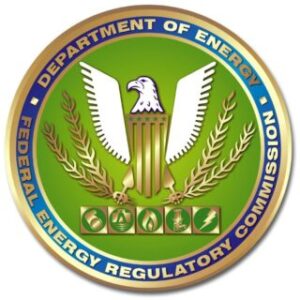
INGAA and NGSA petitioned the Commission in November 2005 to expand its blanket certificate program. While Petitioners found little room for improvement in the Commission’s processing of certificate applications, we urged a few changes that would accelerate the process, with the ultimate goal of facilitating the efficient construction of needed pipeline infrastructure, without impairing the rights of landowners and other interested parties and consistent with public-policy objectives. The Commission’s NOPR adopts many of the Petitioners’ suggestions with respect to expanding use of blanket certificate procedures, and proposes certain additional reporting and environmental procedures for blanket certification.
INGAA supports the Commission’s proposals insofar as they will facilitate and expand the use of blanket certificate procedures. In certain respects, however, it is INGAA’s view that the Commission has been unduly cautious in its approach, and accordingly urges the Commission to expand further the permissible use of blanket procedures. INGAA also opposes certain of the Commission’s proposals regarding new reporting and environmental procedures.
• Incremental Pricing. INGAA urges the Commission to reverse its policy of automatically foreclosing incrementally-priced project proposals. In general, the incremental pricing is consensual, presents no threat to other customers, and should be permitted subject to prior notice procedures.
• LNG Exclusion. INGAA welcomes the NOPR’s proposal to narrow the existing exclusion of LNG-related facilities from blanket processing, but submits that the Commission has been too cautious. INGAA urges the Commission to permit automatic processing of LNG-related projects within the cost limits that it adopts for other projects, and to reconsider and adopt INGAA’s and NGSA’s proposal to permit blanket treatment of facilities that will connect to existing LNG facilities, where the principal environmental and policy issues have already been settled.
• Mainline Facilities. INGAA welcomes the Commission’s proposal to permit blanket processing of mainline project proposals, but again submits that it has been overly cautious in restricting the expansion to prior notice procedures. INGAA submits that there are adequate controls to assuage the Commission’s concern with potentially abusive segmenting. The Commission should also clarify that it did not intend to eliminate from automatic blanket processing certain mainline replacement facilities that are eligible under the existing regulations.
• Cost Limits. Based on the now time-tested experience with the temporary cost limits established in response to hurricanes Katrina and Rita, INGAA urges the Commission to adopt those limits — $16 million for automatic projects, and $50 million for prior notice projects — to govern access to blanket procedures. Those limits would be subject annual increases based on the Commerce Department’s GDP index to allow for future project cost changes.
• Notification. INGAA urges the Commission to reconsider several of the proposed new landowner notification proposals: (1) Without some showing that the existing 30-day construction notice is inadequate, it is not apparent that a 15-day increase is justified by the anticipated increased use of blanket procedures. (2) The requirement to distribute the Commission’s most recent pamphlet on pipeline construction is likely to create confusion because it principally addresses full-fledged section 7 certification procedures rather than blanket procedures. 3
(3) The requirement that pipelines advise landowners of their eminent domain rights is likely to be counterproductive because experience shows that it creates unfounded fear of imminent litigation over land rights. A copy of the Commission pamphlet describing those rights should suffice. (4) The proposed requirement to have a local contact available in all cases is unnecessary and unduly burdensome to many pipelines. The Commission’s goal is accomplished by making a responsible official available through a toll-free telephone number.
• Environmental Conditions. Certain of the proposed new environmental regulations are ill advised: (1) The proposal to measure compressor noise at the site boundary will have a number of costly, unintended, and undesirable consequences, such as creating an incentive for pipelines to buy (or condemn) more land to meet the new specifications, creating a “bigger footprint” with attendant environmental impacts. Similarly, although only a goal, the proposal to establish a nighttime 55 dBA standard for drilling will impose substantial additional costs and, by encouraging a “start and stop” approach, may have the unintended consequences of prolonging the noise impact and promoting environmentally dangerous drilling practices. (2) The proposed weekly environmental inspection report is unduly burdensome in view of the small size and duration of many prior notice projects, and should be replaced with one report to be filed within 30 days of completion of a prior notice project. (3) Similarly, the proposed requirement to file annual reports on construction progress and problems is unduly burdensome and, if not omitted, should be confined to prior notice projects.






